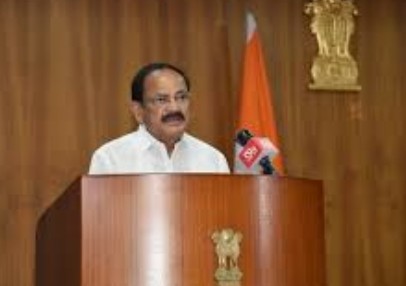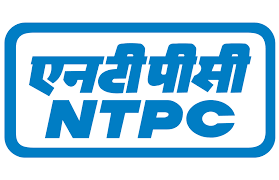India should utilize the immense potential in soft power to expand global outreach- Vice President
Music, dance and drama are India’s greatest gifts to the world, says VP Venkiah Naidu
VP wants music and dance to be made an integral part of school education
Youth should not forget their roots and heritage
Vice President calls upon the artists to fully tap the potential of the virtual medium
Chennai is a unique metropolis that balances modernity with tradition, says VP Naidu
Vice President inaugurates the ‘Yours Truly Margazhi’ virtual event
Indian music and dance embodies the essence of Indian philosophy- unity, peace and harmony
Posted On: 15 DEC 2020 , Delhi
The Vice President of India, Shri M. Venkaiah Naidu today appealed to the artists’ community to utilize the potential of India’s soft power to expand its global outreach. He also urged the artists to fully explore and exploit the opportunities in the virtual medium to reach out to their audiences.
Inaugurating Yours Truly Margazhi’ festival through virtual mode from Hyderabad, the Vice President highlighted the glorious traditions of music and dance in India, and emphasized the importance of reviving them in current stressful times. ‘Yours Truly Margazhi’ is an initiative to keep alive Chennai’s famed tradition of December music and dance festival through the online medium.
Speaking on the occasion, the Vice President underlined the unobtrusive nature of soft power in shaping global thought. Through our dance and music, we can spread ideals like non-violence, peace, and harmony around the world, in line with India’s philosophy of ‘Vasudaiva Kutumbakam’, he noted. Observing the limitations of the government in this process, the Vice President called upon the practitioners, patrons, and organizers to showcase the Indian culture, thought, and way of life.
Recalling his long association with Chennai, the Vice President hailed it as the Carnatic music capital of the country. Shri Naidu also highlighted the unique characteristic of Chennai—as a lively modern city but which continues to maintain its cultural and traditional character.
Shri Naidu observed that the artists community has also suffered during the pandemic and with innovative virtual initiatives like ‘Yours Truly’, they will be able to find new audiences across the world. In the future, real and virtual mediums are likely to co-exist and artists should fully tap the potential of the virtual medium, he added.
Noting the importance of dance and music in relieving people’s anxiety, the Vice President highlighted its importance especially during the time of COVID. He further stressed that Indian classical music and dance epitomize the balance we are looking for in our life. He observed that our classical art forms embody principles of holism, unity, and harmony- within oneself and with nature.
The Vice President traced the ancient music and dance traditions of India, quoting the examples of Samaveda and Nataraja. In the case of Nataraja, Shri Naidu observed how the form of Shiva as the cosmic dancer has been around for more than a thousand years and still retains its original form.
The Vice President emphasized that our cultural treasure of dance, drama, and music is India’s greatest gift to the world and every effort should be made to preserve and propagate them.
He also noted the tremendous interest across the world for our classical art forms
Shri. Venkiah Naidu, reflecting on how classical art forms were integral to our ancient education, suggested that this tradition be revived in a big way. He called for making music and dance an indispensable part of the curriculum. He noted that the New Education Policy is a progressive step in this regard. The Vice President emphasized that practicing classical art forms is highly beneficial to children as it improves attention span, inculcates discipline, creates confidence, increases patience, and teaches the importance of perseverance among many other virtues in children.
Lastly, the Vice President observed that the youth today have a wide exposure to various cultures. While encouraging awareness of cultures of other countries, Shri. Venkiah Naidu said it is important to remain rooted in one’s own culture, heritage, and traditions.
The well known industrialist and philanthropist, Shri Nalli Kuppuswamy Chetty, Shri M.Krishnamurthy, the President, Federation of City Sabhas, Shri K.Harishankar, Secretary, the Federation of City Sabhas, Shri S.Ravichandran, Secretary, the Federation of City Sabhas, Shri R.Sundar, Treasurer, Shri K.S.Sudhakar, Founder of Kalakendra.com were among the eminent personalities who graced the virtual event that saw participation of 500 artists from across 100 events.
Following is the full text of the speech –
“I am very pleased to inaugurate ‘Yours Truly Marghazhi’ Festival, organized by The Federation of City Sabhas and Kalakendra. The COVID-19 pandemic has changed our lives in several ways and totally restricted gatherings for various occasions. In such a time, this initiative through a virtual medium is truly commendable. I am sure that this will go a long way in supporting the seasoned practitioners and encourage budding artists.
I cherish my long association with Chennai, the Carnatic music capital of India. Chennai is a unique metropolis– it is a lively modern city but continues to maintain its cultural and traditional character. That is what makes Chennai so special. It is no wonder that Chennai was recognized by UNESCO in its list of “creative cities” of the world in 2017.
At the heart of the cultural landscape of Chennai, lie the music and dance festivals of the Margazhi season. The city comes alive during the sacred month of Margazhi or Dhanur-maasa when classical music artists from around the world get a chance to showcase their talent here. The December festival has become synonymous with Chennai and has made the city an attractive tourist destination for art lovers from across the world.
Dear sisters and brothers,
We have been fighting the pandemic for over a year now. It has affected our lives, our livelihoods, and our living patterns. In this context, the artists around the country too suffered from the closure of auditoriums. Things are beginning to look better now with innovative initiatives like this.
Although everyone will miss the buzz and enjoyment of physically attending the Sabhas, the new format this year allows us to enjoy the festival from the comfort of our homes. Moreover, patrons abroad too will get a chance to witness the best of performances.
Friends, though the pandemic will end eventually, it might have changed our lifestyles irrevocably. The artists’ fraternity should take this time to reflect on what they can do to adapt to the new normal in our lives. Artists should leverage technology and reach out to their patrons in a creative way. In the future, real and virtual mediums are likely to co-exist and artists should fully tap the potential of the virtual medium.
Brothers and sisters,
In times like this when people go through anxiety and stress, the art forms like music and dance provide the much-needed relaxation and relief to the mind. In fact, they produce a soothing effect and help in re-energizing the mind and body. Indian classical music and dance epitomize the balance we are looking for in our life. They embody the principles of holism, unity and harmony- within oneself and with nature.
The magical effect of these art forms emanates from their ancient roots. India has these glorious traditions of music and dance going back to the Vedic times. Samaveda, a collection of melodies and chants for Vedic rituals is perhaps the earliest human literature on music.
The depiction of Nataraja- with Shiva as the cosmic dancer- has been around for more than a thousand years and still retains its original form. The tandava pose combines Shiva’s roles as creator, preserver, and destroyer of the universe in a single image and symbolizes the Indian philosophy of the never-ending cycle of time.
From the ancient Vedic times to the present, from classical forms to the popular versions in our films, music and dance have been an intrinsic part of our lives. Music and dance are integral parts of joyous occasions and play an important role in promoting and propagating our cultural values.
The Sabhas themselves are drawn from a rich legacy of Sangam age, more than 2000 years ago. We had some of the greatest literary conclaves in the world, with the most renowned poets of the time participating in conclaves such as this. They composed what we now refer to as ‘Sangam literature’. These remarkable anthologies are unrivaled in their antiquity, richness and literary merit.
We have a rich heritage of various art forms and every effort should be made to preserve and propagate them. Our lasting cultural treasure of music, dance and drama is India’s greatest gift to the world.
This great gift continues to be a potent source of soft power for India. As you are aware, there is a tremendous interest across the world for Indian classical art forms. Indian concerts and dance performances are regular calendar events in many countries, and there are legions of followers for dance forms like Bharatanatyam and Kuchipudi. This popularity of Indian dance and music is largely thanks to legends like Rukmini Devi Arundale and Mandolin Srinivas. They took Indian art to the global stage. We can utilize this immense potential in soft power for expanding our global outreach.
By disseminating our classical art forms as a tool of soft power, we can make people aware of the richness and legacy of Indian art and culture.
With such soft-power, we can spread the ideals of non-violence, peace and co-existence around the world in line with India’s age-old philosophy of ‘Vasudaiva Kutumbakam’. With renewed self-confidence, we should aspire to become ‘Vishwa Guru’ again.
Sisters and Brothers,
Classical art forms were an integral part of our education in ancient times. We must revive this tradition in a big way and make music and dance a part of the school curriculum. The New Education Policy also has enabling provisions in this regard. It should be noted that practicing classical art forms improves attention span, inculcates discipline, creates confidence, increases patience and teaches the importance of perseverance among many other virtues in children. It will have a great benefit in their academic and social life too.
The youth today have wide exposure to various cultures. But what is important is to remain rooted to Indian culture, heritage and traditions, while learning about other cultures. Let us also remember what Gandhiji said: “I do not want my 0house to be walled in on all sides and my windows to be stuffed. I want the culture of all lands to be blown about my house as freely as possible. But I refuse to be blown off my feet by any.”
Dear sisters and brothers,
I must compliment the Federation of City Sabhas and Kalakendra for their foresight and for planning this great initiative. With more than 100 events and 500 artists participating in the event, it will be a delightful Margazhi offering. I am sure this will serve as an inspiration for other festivals.
Once again, I am glad to be virtually present with you all today. I would like to conclude by reiterating this: We must all come together, to nurture our culture, further our country’s stature, and secure our children’s future.
Jai Hind!”








